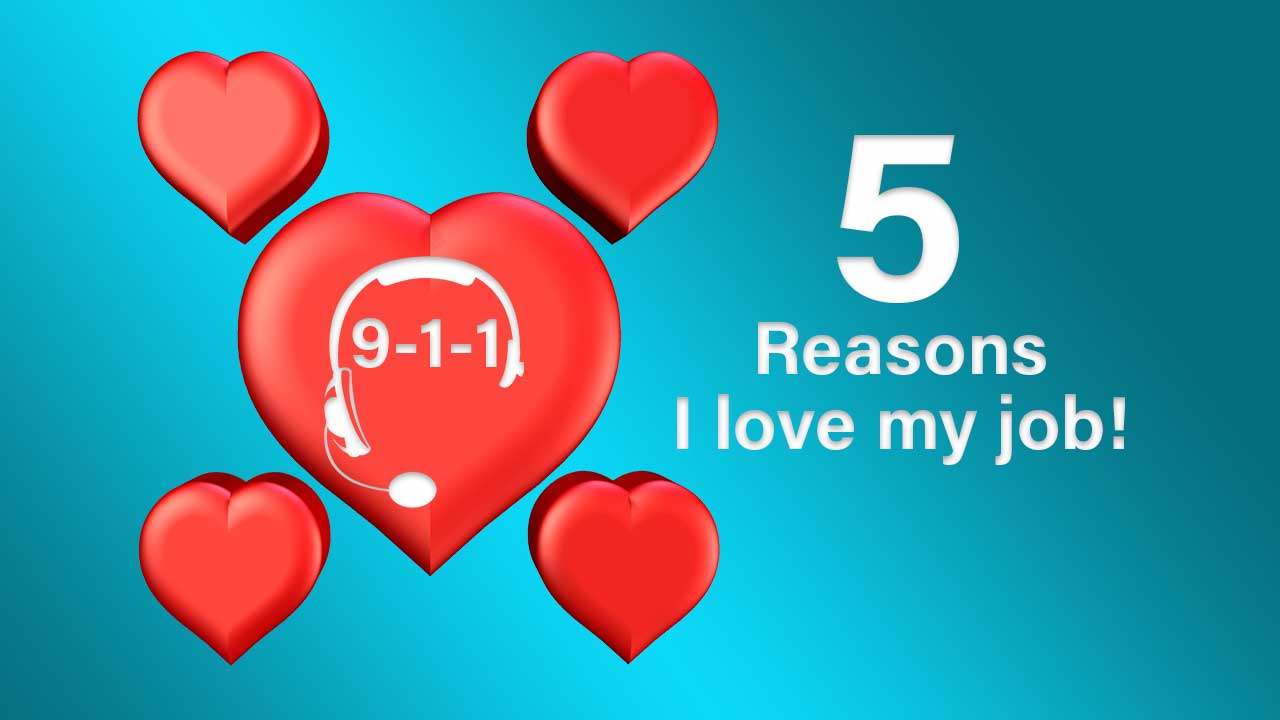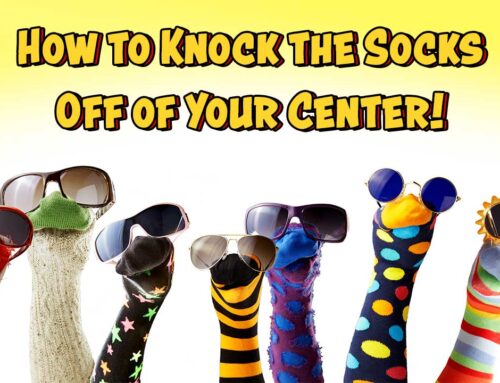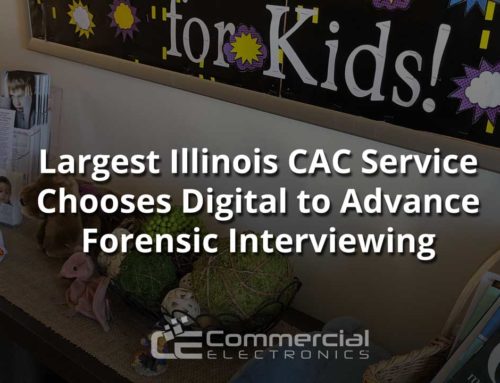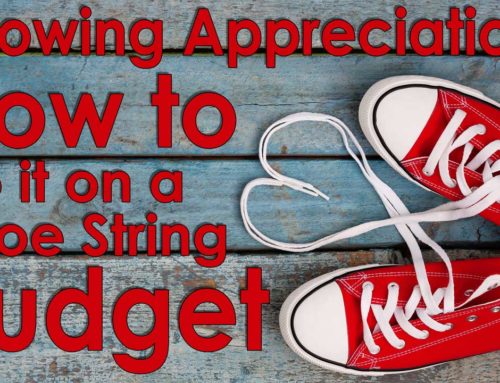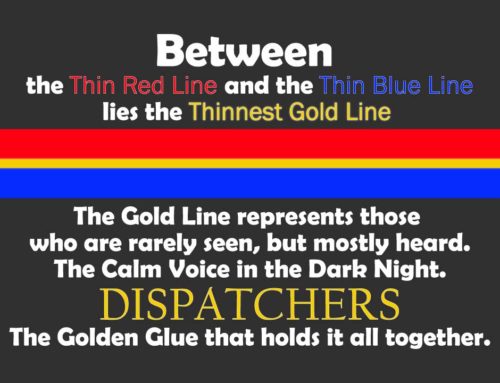I began my career as a telecommunicator in 1987 when I was hired as a police dispatcher by a local agency. A few years later, we were consolidated with the fire department dispatch, who had just taken on providing EMS service for the city. I worked for that agency for 22 years before moving on to take a position as a director.
I’m on the private side now, but I will always be a telecommunicator at heart. Below are just a few of the reasons I will always love being a telecommunicator.
It Ain’t Easy!
The job of a telecommunicator is one of the most underrated jobs in the public safety industry. Those of us in 9-1-1 did not get into the job because of the high pay, the appreciation of our adoring public, or the recognition we receive from the responders and our agencies.
Some of us may have had a glamorous view of the job from watching television. There was “Rescue 911” that highlighted the job of telecommunicators and was the first show to bring the position to the public’s attention. However, during each episode of the show they focused on one emergency, the steps the telecommunicator took, and the positive outcome. At no time was it ever portrayed that the telecommunicator had other emergencies working at the same time, the less than perfect outcomes, or the stress of getting everything right on every call.
Now there are other shows portraying 9-1-1 telecommunicators, such as “9-1-1” and “9-1-1: Lone Star”, but those shows spend most of the time showing the responders as heroes and saving the day rather than focusing on 9-1-1.
So, with such little recognition, low pay, and no appreciation of the job, why do we do this? Why do we still love our jobs?
#1 – The excitement never ends
Whether you are answering the phones or dispatching on the radio, you never know what that next ring or transmission is going to bring. It could be something as simple as an alarm call, with motion in Zone 5, or it could be a homicide/suicide that turns into an hours-long standoff.
One Sunday morning around 11:00, it was very “Q-word” when 9-1-1 rang. It was a 10-year-old child saying she thought her mother was dead because there was blood “everywhere”. She was the oldest of five children in the house and had finally managed to get the door open to her mother’s bedroom to find her. When I asked her what she meant by blood “everywhere”, she went to look, then came back on the phone and said there were other people dead too. It turned out the mother’s ex-boyfriend had shot the mother, the new boyfriend, and then shot himself…all with five children in the home. That Sunday morning went from zero to a hundred in 10 seconds flat!
So, you never know what’s going to be next and that keeps so many of us in the job, knowing we would be bored doing anything else.
#2 – We Are Family
We must admit that, as much as we get on each other’s nerves, our co-workers and responders feel like family. And just like family when someone’s in trouble, the family squabbles go out the door and everyone works together to get it resolved.
So many agencies have had officers or firefighters injured or killed in the line of duty the past couple of years and it is as hard on every one of us as losing an actual family member. In fact, we spend more time with these people than we do our own families, so it would stand to reason that it would affect us as much, if not more.
Also, in spite of the number of agencies out there, the 9-1-1 industry is very small. As we attend classes and conferences and meet different 9-1-1 people from all over the world, they become like family to us. I’ve thought for many years now that attending the APCO and NENA conferences is like going to family reunions. It’s a chance to see all the people I talk to all year long but only get to see once a year. Yes, we are family.
#3 – Born snoopers
Admit it. There’s nothing quite like the rush of going through your systems, records, and files, searching for an identity on someone who’s refusing to identify to an officer, and finding a DL, DOB or an LP. How about digging and trying to find contact information for a victim who doesn’t know they’ve been victimized yet?
Most of us are born snoopers, and the detective work we must do sometimes to help an officer out is challenging and VERY rewarding when we find something. Especially when that something turns out to be a felony warrant.
A bank was robbed one afternoon at the northwest edge of town, and the robbers got away immediately on one of the four roads that led out of town just down the street from the bank. One of the bank tellers heard one suspect call the other one “Jeff” and a customer was able to get the last three numbers of the license plate of the white Oldsmobile they were driving.
Through some diligent work, one of the telecommunicators was able to come up with a registration to a white Oldsmobile Alero, registered to Danny Jeff Jones (name changed to protect me) at an address in the county. Officers were able to obtain a warrant and arrest him two days later. What. A. Rush! You can’t get that working in an insurance office.
#4 – The sense of accomplishment
Let’s face it. This job is stressful and seems to be getting even more so every day. We frequently hear news stories of police chases, armed standoffs, major commercial fires or gas explosions, and for every one of those stories you hear, there is a group of telecommunicators who have worked that situation on the phones, the radio, or both.
We’ve all been there at one time or another, working a hot call with an extreme amount of radio traffic and phone calls to handle, while keeping the responders and citizens safe. If you work in a one-person agency, then it’s up to you to handle all of that by yourself. If you work in a larger agency, you have more help, but you also have more units and more radio traffic.
The one thing you both have in common is that when you leave at the end of your shift, you have an incredible feeling of accomplishment. It was busy, you were stressed, but you got it done and now you can breathe, knowing you did your best.
#5 – The Saves
You can have the worst week at work but that’s all erased when you talk someone through CPR, childbirth, a sinking vehicle, or even tell a child what to do until EMS arrives. You. Save. Lives.
At the end of your shift, you go home to a household carrying on as usual, but you know you saved a life. No one recognizes you as you walk through the store, or in the mall, or down the street, but you know you are a hero…and so does someone else. Nothing in the world can take away that feeling.
This job is tough and it’s thankless. Only 2% of the population can do it. And that 2% grumbles about the job daily, but we love it and wouldn’t want to do anything else. So, when you get discouraged about the lack of recognition, take a moment to stop and think about why you love this job.

